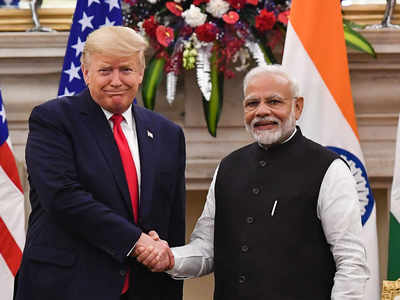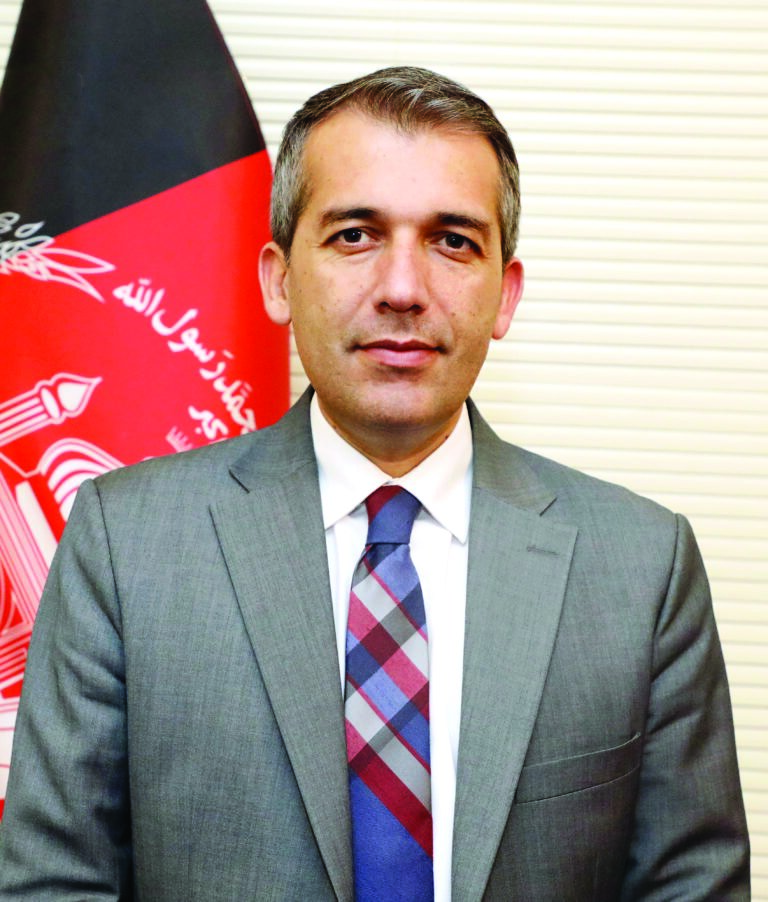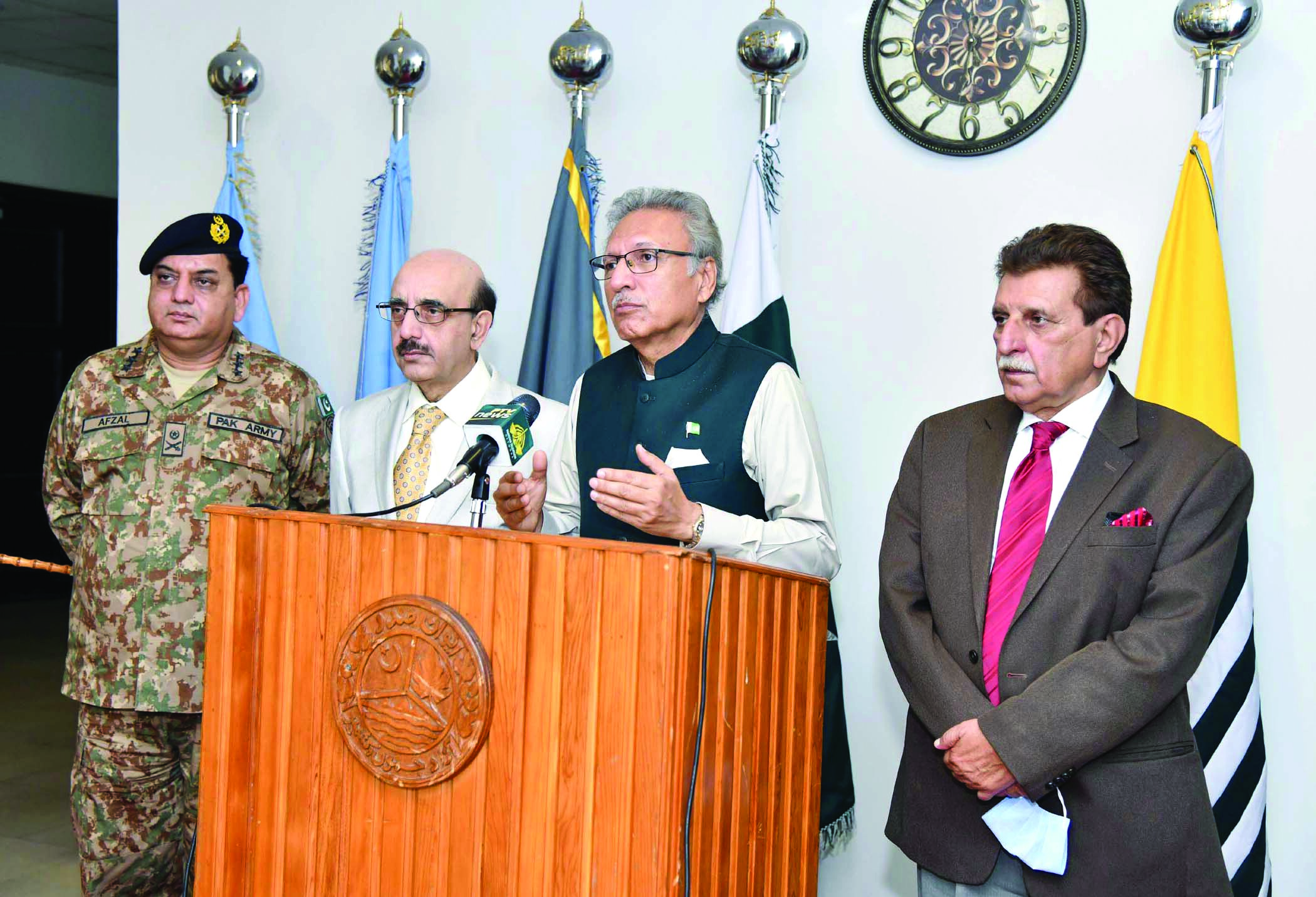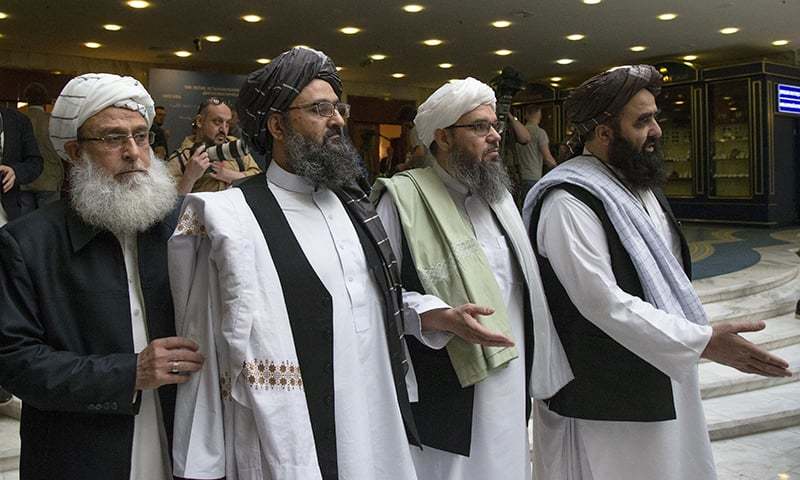Prime Minister Narendra Modi had composed President Donald Trump’s visit as a demonstration of India’s rising stature on the world stage. However, as President Donald Trump toured India’s capital, at least 11 people were killed in mob violence. While the duo discussed geopolitics in New Delhi, Hindus and Muslims comprising thousands of furious residents faced off again, hurling petrol bombs, attacking vehicles, burning properties and hospitalizing the injured and dead.
Gone are the days when no world leader could pronounce word ‘K’, especially on Indian soil. During his recent visit to India, President Donald Trump reiterated his offer to mediate the Kashmir dispute. Hid did so publicly as well as behind back door interactions. “Willing to mediate between India and Pakistan on Kashmir,” he was quoted as saying during the press conference on Feb 25. This is the third time that Trump has offered both nuclear armed neighbours to help resolve the long-standing Kashmir conflict.
Indian Occupied Kashmir remains under siege since August 05 with a complete information and communication blockade, while top local political leaders are in detention. The Modi government is now reluctantly easing the draconian curbs after drawing flak from the international community.
The US president said his administration is hopeful for “reduced tensions and greater stability” between Pakistan and India. “Our relationship with Pakistan is a very good one. Thanks to these efforts, we are beginning to see signs of big progress with Pakistan,” Trump said while addressing a mammoth crowd of more than 100,000 people at the opening of the world’s largest cricket stadium in Gujarat, shortly after his arrival to India.
To please or to, say, fool Prime Minister Narendra Modi, Google Maps show Kashmir as part of India as long as one views it from within the borders of India but for people outside the country, the outlines of the region are shown in dotted lines, thus acknowledging Kashmir as a “disputed” territory, the Washington Post reported.
In one of its recent reports prepared for the US Congress, the Congressional Research Service (CRS) has opined that US President Donald Trump’s offer to mediate between India and Pakistan over the Kashmir dispute might have prompted New Delhi to annex the Indian Occupied Kashmir (IOK).Trump’s statement that Modi had requested him to mediate between Pakistan and India on Kashmir had triggered a pandemonium in Indian parliament demanding explanation, thus forcing the Indian government to take such a step that could assure the parliament that Modi could have never made such an offer. “The episode may have contributed to India’s August moves” to annex Kashmir, CRS added.
Indian newspaper The Hindu had reported soon after annexation that “According to senior sources in the government, the BJP’s ideological imperative of doing away with Article 370 has been always there, but the impetus for it was provided first by Union Home Minister Amit Shah’s determination to change the status quo in the State and also events in the past two weeks, after US President Donald Trump publicly said that Prime Minister Narendra Modi had approached him to play mediator for the dispute in the State. The Union government, of course, denied any such conversation with Mr. Trump, but the realisation in government circles was to do something that would demonstrate that it was irrevocably opposed to US mediation.” This however is only partially true because RSS-BJP has since long been harbouring this kind of action, the point was included in BJP’s party manifesto in run up to 2019 general elections.
In Trump’s statement, Indian leaders “saw Washington again conceptually linking India and Pakistan, ‘wooing’ the latter in ways that harm the former’s interests,” CRS noted, adding that President Trump’s Kashmir mediation claims were especially jarring for Indian observers, “some of whom began questioning the wisdom of Mr Modi’s confidence” in the United States as a partner. In its second report on Kashmir in less than six months, CRS also noted that many in India disagree with the Modi government’s “blanket characterisations of the Kashmir conflict as an externally fomented terrorist.” They argue that such characterisations “obscure the legitimate grievances of the indigenous Muslim majority populace,” the report added. Despite strong reaction from India, President Trump has not withdrawn his mediation offer; and the US State Department has stated that the Trump Administration “stands ready to assist.”
CRS reported that critics of the Modi government believed it was working on a “Hindu nationalist agenda” to change the status of the occupied valley. The critics argued that “its policy agenda entails bringing the patriotism of Indian Muslims into question and portraying Pakistan as a relentless threat that manipulates willing Kashmiri separatists, and so is responsible for violence in Kashmir,” the report added. CRS noted that “India’s self image as a regional leader in no need of assistance” prevents it from accepting third-party mediation on Kashmir.
Currently, two resolutions are pending in the House of Representatives that question India’s Aug 5 decision to annex Kashmir. One of the resolutions was sponsored by Indian American Congresswoman Pramila Jayapal who also criticizes the Modi government’s anti Muslim policies.
Taking notice of over 200-day long curfew in India held Kashmir, United Nations secretary general Antonio Guterres on February 16 called upon India to ensure that the people of the occupied valley enjoyed the same fundamental rights and freedom of movement as being enjoyed by the people of Azad Kashmir. Speaking at a joint press conference with Foreign Minister Shah Mehmood Qureshi in Islamabad, he called for resolution of the Kashmir dispute by honouring resolutions of the UN Security Council. The UN chief offered his role as a mediator and said his good offices could be used for this purpose.
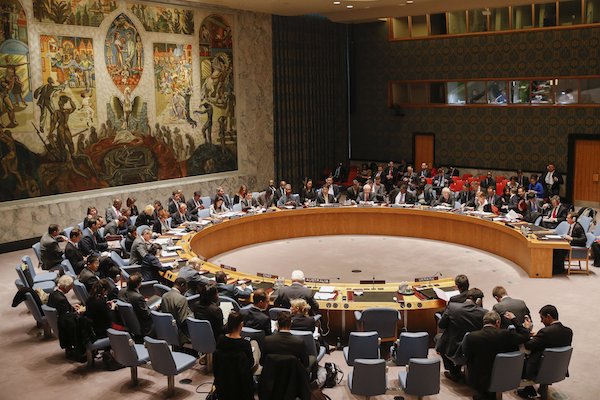
Talking about the relations between Pakistan and India, UNSG stressed the need for de-escalation, both militarily and verbally. “We have taken position about the need for Security Council’s resolutions to be implemented for effective de-escalation”. He also asked India to respect fundamental rights of people living in Indian side of Jammu and Kashmir. “Another important aspect, which needs full respect of human rights and continental freedom in Jammu & Kashmir, is that people should have free movement as it has in Pakistan’s side. I hope this will also be achieved on the other side [India]. I have offered my good offices in relation to the situation and our position is that the Security Council’s resolutions be implemented,” he added. Mr. Guterres said good offices only work when accepted by both sides. “Diplomacy and dialogue remain the only tools that guarantee peace and stability with solutions in accordance with the Charter of United Nations and resolutions of the Security Council,” he said, adding that he had repeatedly “reiterated my offer to exercise my good offices should both sides ask”. Talking about tensions along the Line of Control, the UN chief said he was “deeply concerned” and had “repeatedly stressed the importance of exercising maximum restraint”.
FM Qureshi drew the UN chief’s attention to the ongoing lockdown and communications blackout in occupied Kashmir and said that “all shades of Kashmiri opinions, barring the BJP mind set, have rejected those actions”. He said the ceasefire violations along the Line of Control had increased since the events of Aug 5, 2019, when India abrogated occupied Kashmir’s special status.
Turkish President Recep Tayyip Erdogan during a joint session of Parliament in Islamabad, on February 14, reiterated his country’s support for Pakistan’s stance on the Kashmir issue. He likened Kashmir to Gallipoli. The Gallipoli campaign, which is also known as the Battle of Çanakkale, was one of the bloodiest campaigns of the First World War that took place in what is modern day Turkey. The campaign, which began after Allied forces landed in the Turkish peninsula to oust the Ottoman Empire, resulted in the deaths of hundreds of thousands on both sides. The Turkish president said what had happened in Turkey all those years ago was being repeated in Indian occupied Kashmir today. “Events that happened a hundred years ago in Çanakkale in Turkey are being repeated in Indian occupied Kashmir and Turkey will continue to raise its voice against the oppression. “Today, the issue of Kashmir is as close to us as it is to you [Pakistanis],” he said, reiterating Turkey’s support for Kashmir’s.
Referring to Kashmir multiple times in his address, Erdogan also said: “Our Kashmiri brothers and sisters have suffered from inconveniences for decades and these sufferings have become graver due to unilateral steps taken in recent times. “The Kashmir issue can be resolved not through conflict or oppression but on the basis of justice and fairness. Such a solution will serve the interests of all parties concerned. Turkey will continue to stand by justice, peace and dialogue in the resolution of the Kashmir issue. “Like in the past, we will continue to support Pakistan in the future,” he vowed. “On this occasion, I would like to emphasise that we appreciate Pakistan’s positive contributions to the peace process in Afghanistan. As Turkey, we lent the necessary support to Pakistan and Afghanistan both of which we deem as our brothers and sisters.”
In a kneejerk, India summoned the Turkish ambassador on February 17 to lodge a diplomatic protest over President Erdogan’s remarks on occupied Kashmir and warned it would have a bearing on bilateral ties. India told Turkish envoy Sakir Ozkan Torunlar that Erdogan’s comments lacked any understanding of the history of the Kashmir dispute, the Indian foreign ministry said. “This recent episode is but one more example of a pattern of Turkey interfering in the internal affairs of other countries. India finds that completely unacceptable,” foreign ministry spokesman Raveesh Kumar said.
Muslim-majority countries such as Turkey and Malaysia joined in calls for India to reconsider its actions in IOK. Indian government has put curbs on palm oil imports from Malaysia in retaliation and officials have said it is planning to cut some imports from Turkey as well.
In the meanwhile. a British lawmaker, known for raising voice for the oppressed people of Indian Occupied Jammu and Kashmir (IOJ&K), was deported from India after landing at New Delhi’s Indira Gandhi International Airport on February 17.MP Debbie Abrahams, a Labour Party lawmaker who chairs a parliamentary group focused on Kashmir All Party Parliamentary Group for Kashmir (APPG), was unable to clear customs after her valid Indian visa was rejected, according to an official statement issued by her United Kingdom office. The immigration officials did not cite any reason for refusing Abrahams entry and revoking her visa, a copy of which, valid until October 2020, she shared with the media. The UK lawmaker has been critical of the Indian government’s move to revoke semi-autonomous status of the occupied valley. APPG had conveyed concerns to UN Secretary General, and Indian High Commission regarding situation in Kashmir.
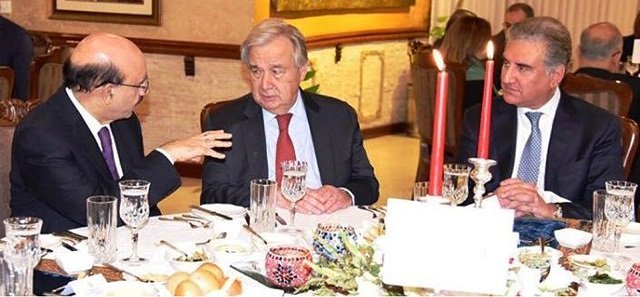
President AJK Sardar Masood invited UNSG Antonio Guterres to visit Azad Jammu and Kashmir. While meeting the UN chief at the Foreign Office in Islamabad on February 17, President Masood appreciated his role as a ‘mediator’ between India and Pakistan to de-escalate tensions and for calling the resolution of Kashmir dispute in accordance with the UN Security Council resolutions. “Don’t take India’s ‘no’ for the use of good offices or diplomacy and dialogue in accordance with the United Nations’ Charter. This is a collective obligation for all nations. One UN member cannot hold the entire organisation hostage by its obduracy,” President Masood said while proposing Guterres to make the submission of the UNMOGIP reports to the UN Secretary General’s office and their circulation to all members of the UNSC mandatory. He said UN is the flag bearer of the international order based on the rule of law. “The UN Secretary General is seen as an international icon who should demonstrate leadership to save humanity from the scourge of war and liberate people living under alien domination and foreign occupation.” He also thanked Guterres for holding detailed conversations in the past with Indian Prime Minister Narendra Modi and other leaders. “War would be a devastating aberration for humanity; peace and reconciliation are a historic imperative in the region. This is only possible by ensuring the realisation of the right to self-determination of the people of Kashmir.”
While in India, President Trump stressed upon the strength of his relationship with Modi in meetings but was long on symbolism and short on concrete agreements. Two leaders celebrated a series of modest agreements that had been set before the trip. Trump and Modi’s warmth did not translate into trade. A trade deal with India has been a priority for two years for Trump, who would like another economic agreement to show while campaigning before the November election. But the two sides have been divided over farm products, medical devices, digital trade and new tariffs. Trump has complained that India treats the United States unfairly and called Modi a “tough negotiator.” Trump talked about some of his longstanding complaints about India’s trade policies, complaining to reporters that New Delhi maintained unfairly high tariffs on American goods.
Trump and Modi celebrated a series of modest agreements that were set before the visit, including a $3 billion arms purchase and a letter of cooperation between Exxon Mobil and India’s energy sector. They agreed to create a joint counter narcotics working group to reduce opioid abuse. There was huge disparity between the hopes of Trump’s trip and the tensions outside the fortified environs of world leaders. He did gently urge Modi’s government to respect freedom on the internet, which the Indian government has shut down repeatedly.
It was a failed summit. US$ 3 billion arms deal itself is a tight slap in face of Modi’s “Make in India” rhetoric. Trump now owns Kashmir conflict that was talked about publicly and more vigorously behind closed doors. Probably Trump visited India to discuss only Kashmir. Hopefully, his twitter would soon break the story, then Modi will desperately look for a place to hide.
To India’s chagrin, with the passage of time, international support for early resolution of Kashmir dispute in increasing, rather than fading. Kashmir has become a bone stuck in Modi’s throat, neither easy to swallow nor possible to retrace. Sooner or later Modi will have to return to Trump for mediation.
Now it is time for Donald Trump and Antonio Guterres to walk the talk and take a practical course for resolving the Kashmir dispute. If there is requisite will, more than one course of action is open for doing so.


